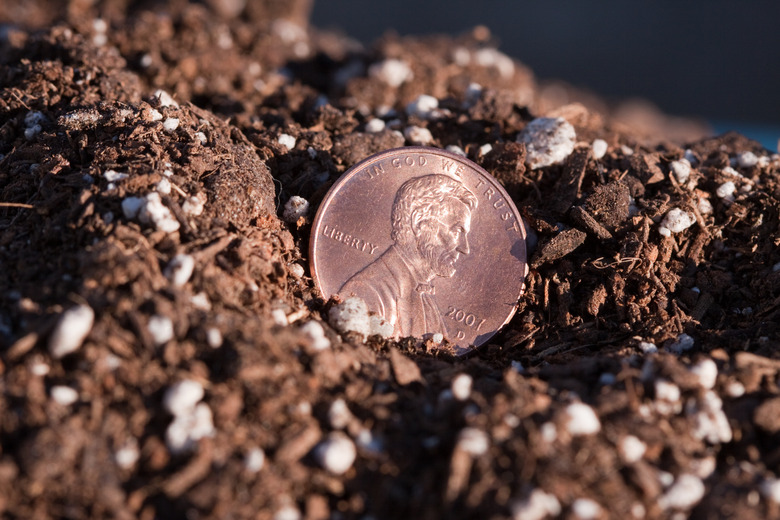Why Do People Plant Pennies?
Have you ever seen a penny planted in someone's garden or hidden within the soil in an indoor plant pot? Or, perhaps you've noticed pennies at the bottom of a vase of flowers? This is no accident or means of deriving luck. In fact, many people plant pennies to keep their plants healthy and pest-free.
According to gardening community Gardenstead, you might find a plant parent burying pennies in soil to ward off slugs and snails. Allegedly, when these critters come in contact with copper, they experience an unpleasant reaction akin to static shock. Plus, since many fungicides also contain copper, pennies may act as a non-chemical method for keeping fungus at bay.
In addition to acting as a deterrent, planted pennies might also improve soil quality, since healthy soil tends to contain low levels of copper. Pennies can be especially helpful when your soil is highly acidic or alkaline, which tends to indicate reduced copper levels. Of course, when trying this out in your own garden, make sure to not overdo it. An overabundance of pennies can lead to copper toxicity, which will hinder your plant's growth.
It's also important to ensure that you're using pennies dated 1982 or earlier, since newer versions tend to contain less copper.
Why do people put pennies in flower vases?
People put pennies in vases filled with flowers for the same reason they put them in soil: to prevent fungus growth and provide the blooms with nutrients. However, a Science World experiment found that this technique does not work.
At the end of the day, using pennies to promote plant growth and health is an old wives' tale. Other than the study mentioned above, we weren't able to find any conclusive data about pennies acting as a fungicide and catalyst for the improvement of soil quality. Yet, many people online still believe that this practice works.
Despite the lack of research, it still wouldn't hurt to throw a few pennies in your garden or plant pot. And hey, maybe you'll even notice a difference!
